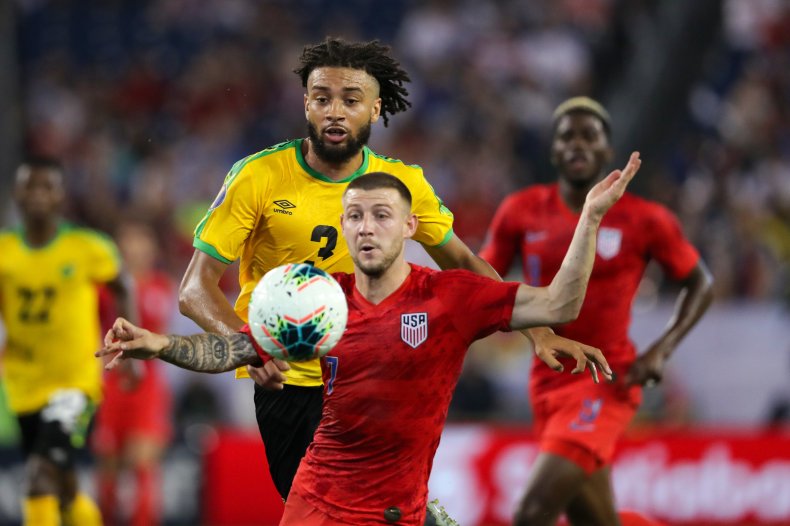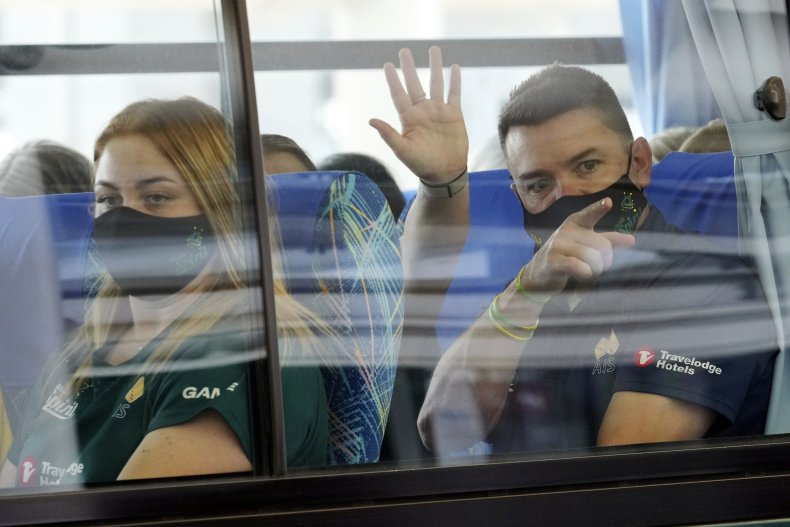COVID-19 Protocols Keep Jamaica's Soccer Team From Entering Japan, Cancels Exhibition
Multiple players from the Jamaican men's national soccer team weren't allowed to enter Japan on Tuesday due to undefined COVID-19 protocols, forcing the cancellation of a June 2 exhibition against Summer Olympics host Japan, the Associated Press reported. The Japanese Football Association did not announce the specific reason the Jamaican athletes were barred from the country.
Tokyo, Osaka and other prefectures are navigating COVID-19 states of emergency set to continue until June 20, while Japanese polls show that the majority of residents want the Olympic Games to be canceled or delayed again.
Despite the increasing pressure, the International Olympic Committee reported that over 80% of the athletes and staff will be vaccinated and reside in a bubble during their time in Japan.
For more reporting from the Associated Press, see below.

The Australian Olympic women's softball team entered Japan on the same day the Jamaican soccer team was due, making it one of the earliest to arrive in the country before the July 23 opening of the Games. David Pryles, the Softball Australia chief executive, said that the team would take "utmost care" to protect themselves and the public from the virus.
"All staff and players heading to Japan today are fully vaccinated thanks to the Australian Olympic Committee," Pryles said on Tuesday. "They'll also be undergoing stringent testing and checks as soon as they land at the airport and throughout their camp and [the] Olympics."
Pryles said player movement would be restricted to one level of the team hotel in Ota, which would include meals, meetings and gym work, and the stadium where they'll play a series of games against local professional teams and two games against Japan's national team.
"We're incredibly grateful the people of Ota City and their government for hosting the squad who will respect the restrictions placed upon us," he said.
Ian Chesterman, the head of Australia's Olympic contingent, said athletes and officials were "very comfortable" with the precautions being put in place for the Tokyo Games.
"These athletes...are committed to not only look after themselves but do the right thing by the Japanese population as well, and be ready for the games," Chesterman said. "And I think we're very comfortable with the protocols that have been put in place to manage not only this group of athletes but the Australian team when we get there."
Australia is targeting its first Olympic softball gold medal, having collected either silver or bronze in 1996, 2000, 2004 and 2008 before the sport was cut from the program for the 2012 and 2016.
Newsweek, in partnership with NewsGuard, is dedicated to providing accurate and verifiable vaccine and health information. With NewsGuard's HealthGuard browser extension, users can verify if a website is a trustworthy source of health information. Visit the Newsweek VaxFacts website to learn more and to download the HealthGuard browser extension.


